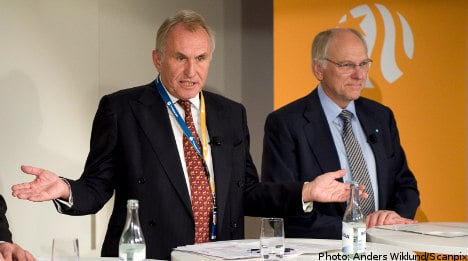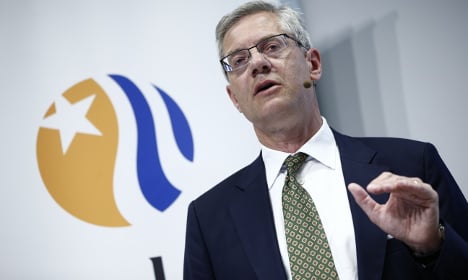“I have asked the police to gather written documentation and then I shall see where it leads,” said chief prosecutor Alf Johansson to the Svenska Dagbladet daily.
The preliminary investigation has been classified as a case of aggravated breach of trust.
The Swedish government last week fired Vattenfall chairperson Lars Westerberg as a result of the erroneous pensions payment to the former CEO.
A secret agreement to pay Josefsson a year of his two year notice period in the form of a regular pensions payment was brokered by Westerberg and Gejrot and has now been found to be in breach of government guidelines on remuneration.
The agreement was discovered by the firms accountants in the beginning of the year.
Lars Westerberg has explained his decision by claiming that he did not have all the relevant information, although he has been unwilling to claim that anyone deliberately misled him.
The former CEO Lars G. Josefsson has declared that he is prepared to pay back the remuneration and is due to do so by the end of March.
Vattenfall’s press office stated on Wednesday that the firm’s leadership declined to comment on the investigation.
“We don’t want to comment on a legal process until it is completed.”



 Please whitelist us to continue reading.
Please whitelist us to continue reading.
Member comments